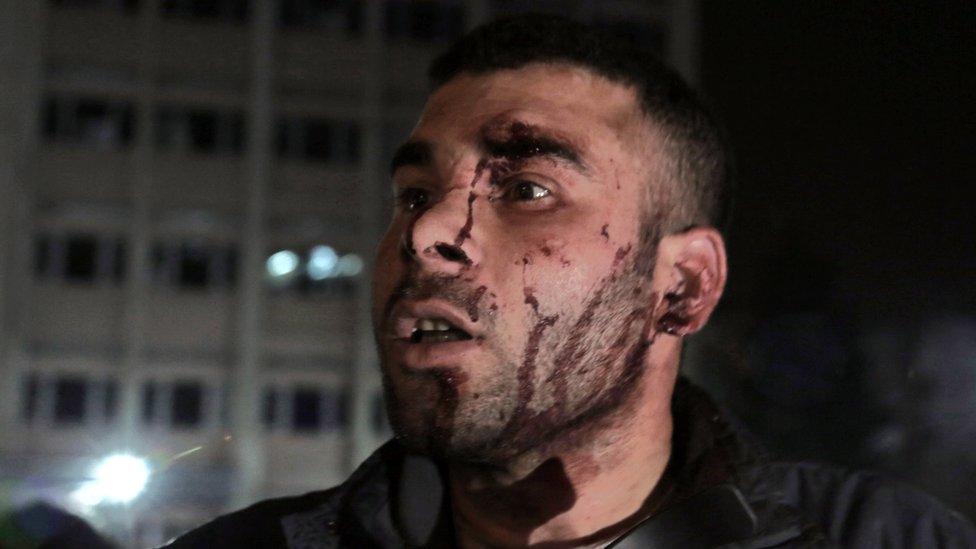Turkey blames Islamic State for Istanbul bombing
- Published
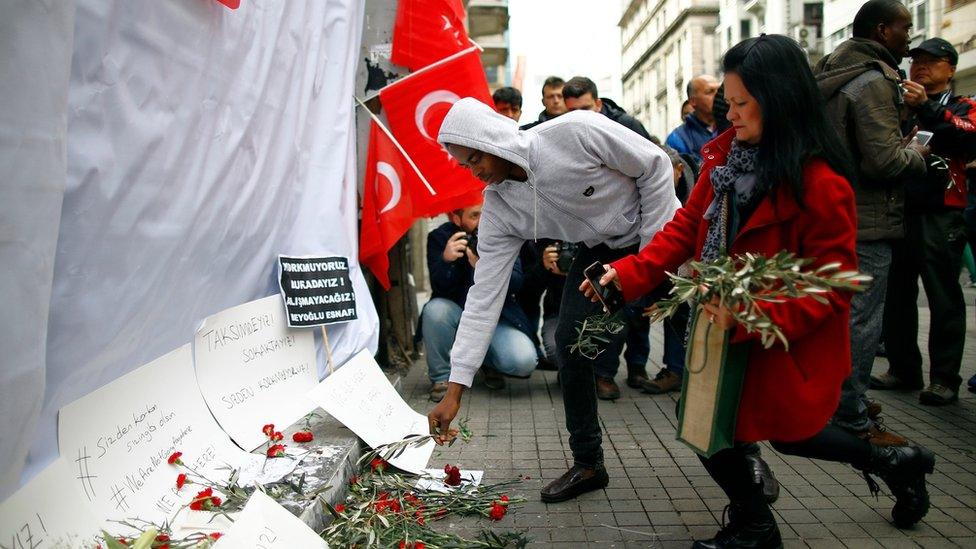
People have been leaving flowers at the scene of the attack
The suicide bomber who killed four people in Istanbul's main shopping street belonged to so-called Islamic State (IS), the interior minister says.
Efken Ala named the man as Mehmet Ozturk. He told reporters that five people had been questioned so far.
Mr Ala announced a review of security measures in seven Turkish provinces following several attacks since July.
Meanwhile a soccer game between Galatasaray and Fenerbahce on Sunday night has been postponed.
A statement from the Istanbul governor's office said that the decision had been taken for security reasons "after the evaluation of credible intelligence".
Fans had already begun to arrive for the match at Galatasaray's Turk Telecom Arena when the announcement was made, leaving them with no choice but to leave the ground.
The postponement came even though the authorities have repeatedly urged the 15 million inhabitants of Turkey's largest city to carry on with their normal daily lives after the blast.
'Avoid Turkey'
Three Israelis - two with Israeli-US nationality - and an Iranian died in the attack. Another 36 were injured.
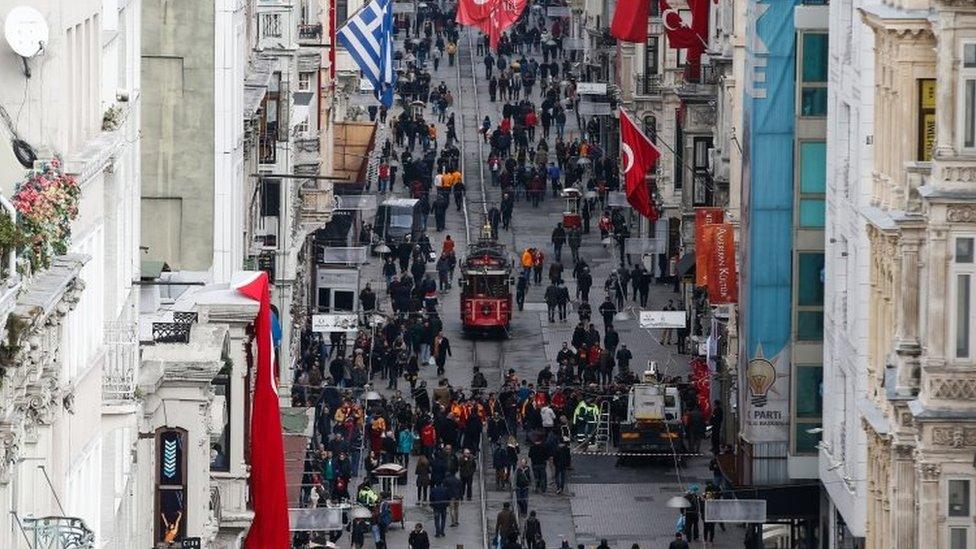
President Erdogan has said terror groups are targeting civilians because they are losing their struggle against Turkish security forces
Eleven Israelis were among the injured. Two Irish citizens, one national each from Germany, Iceland, Dubai and Iran were also injured.
The coffins of the Israeli nationals were being flown out on Sunday. The Israeli government advised its citizens to avoid Turkey.
How dangerous is Turkey's unrest?
Turkey in midst of hideous vortex
Islamic State group: The full story
"We have determined that Mehmet Ozturk, born in 1992 in Gaziantep, carried out the heinous attack on Saturday in Istanbul," Mr Ala told a news conference in the capital Ankara
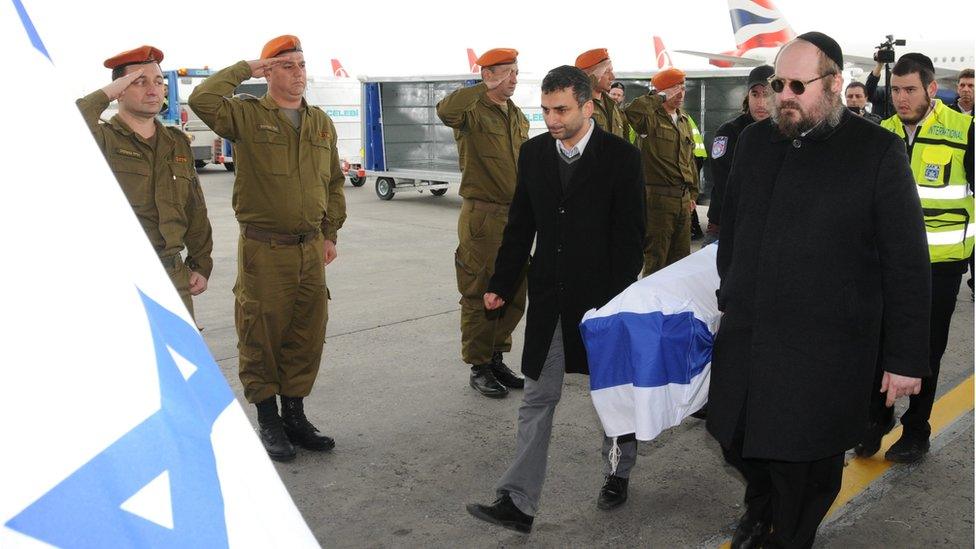
As the bodies of the Israeli victims were being repatriated, Israel advised its citizens against going to Turkey
"It has been established that he is a member of Daesh," he said using another name for IS.
Turkey is part of the US-led coalition against IS and allows coalition planes to use its air base at Incirlik for raids on Iraq and Syria.
It has been attacked by IS in the past - most recently in January when a suspected suicide attack in Istanbul killed 12 German tourists.
And more than 100 people died outside Ankara railway station in October 2015 when IS militants carried out a double bombing close to the headquarters of the national intelligence organisation.
Kurdish militants have claimed a number of recent attacks in Turkey.
President Recep Tayyip Erdogan has said terror groups are targeting civilians because they are losing their struggle against Turkish security forces.
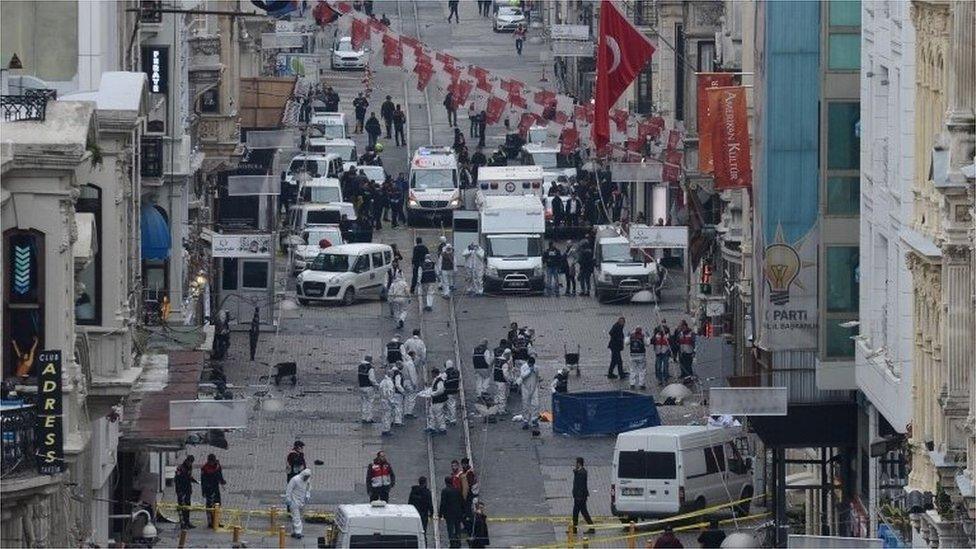
Turkish police, forensics and emergency services work at the blast scene
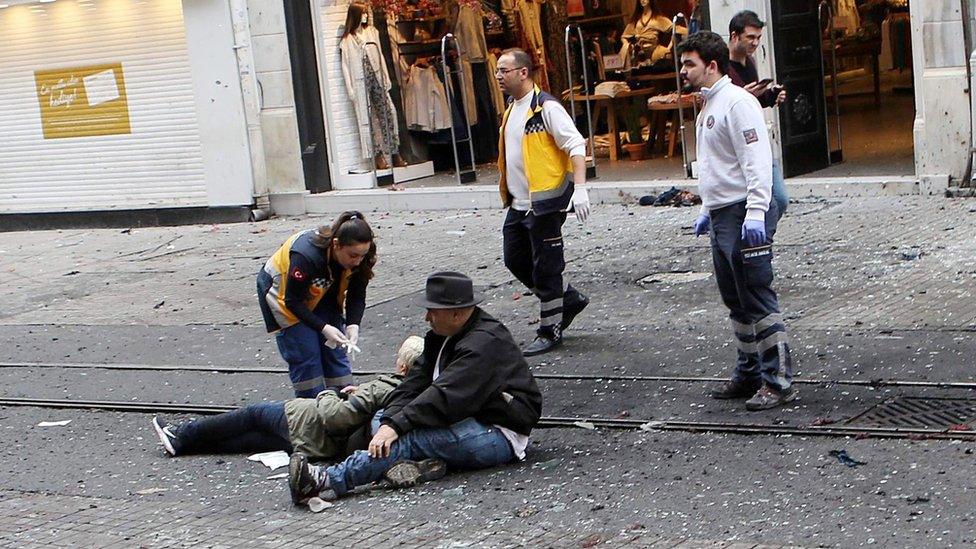
Medics rushed to try to help a wounded man
Turkey's tensions: Read more
Who are the Kurds? - The long history of the Middle East's fourth-largest ethnic group
Turkey v Islamic State v the Kurds - What's going on?
What is 'Islamic State'? - A profile of the militant group
Border tensions: Why is Azaz in Syria so important for Turkey and the Kurds?

- Published5 January 2017
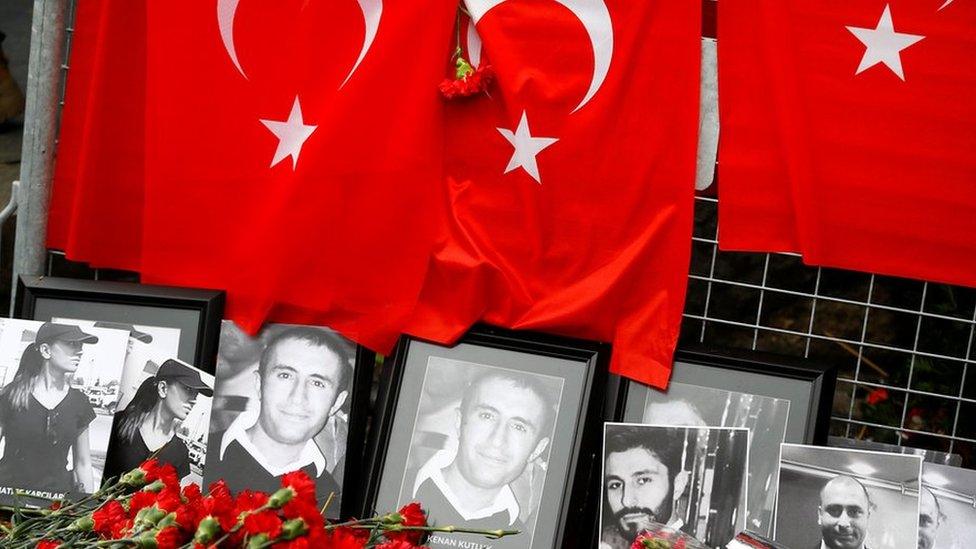
- Published14 March 2016
